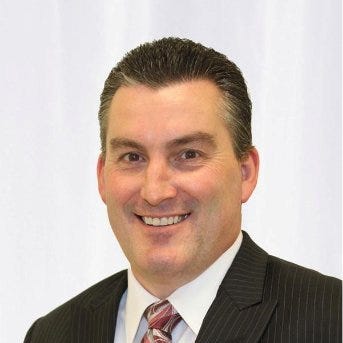What a 30-Year Industry Veteran Has Learned about Medtech
March 11, 2015
Robert Roche over the past 30 years has witnessed firsthand the consolidation of the medtech industry and a host of advances ranging from new materials to component miniaturization.
Qmed Staff
|
Bob Roche is the chief operating officer and director at Wytech. |
Recently hired as chief operating officer at fine wire and tubing maker Wytech Industries (Rahway, NJ), Robert Roche has held a range of medtech industry management positions since 1984--just a year before MPMN was started.
The former chief operating officer and director of Katahdin Industries (Boston), Roche will oversee Wytech's operations in New Jersey and Colorado. Roche was also the co-founder, president, CEO and director of Tegra Medical (Franklin, MA), a contract manufacturer specializing in minimally invasive and orthopedic markets.
As part of marking MPMN's 30th anniversary, it made complete sense to reach out to Roche and find out some of his thoughts about how the medical device industry has changed since the 1980s, and where its future lies.
MPMN: Which advances in the past 3 decades do you think are the most noteworthy in the medical device industry?
Roche: There have been several areas of big technological advances over the past three decades:
The use of nitinol for its shape memory properties.
The use of plastics materials such as bioabsorbable materials and PEEK for implants.
The miniaturization of components through micromachining and micromolding designed to be less invasive.
Coated stents and balloon catheters to prevent heart attack and stroke.
The use of lasers as both a medical manufacturing and treatment method.
The integration of microelectronics, cutting-edge software and hardware in monitoring and imaging device designs affording better reliability, accuracy and repeatability.
MPMN: When you look back at your experience in the medical device industry, which medical devices that have debuted in the past three decades would you say are the most noteworthy?
Roche: From my perspective working with contract manufacturers serving the medical device industry, I would say laparoscopic technology has been a real advance. Laparoscopic procedures have given patients a variety of less invasive treatment options to surgery.
In addition angioplasty and use of balloon catheters and stents also represent a big breakthrough. They have reduced the incidence of heart disease and stroke dramatically.
There have also been orthopedic advancements in devices to treat extremity ailments (knees, hips, shoulders, spine, etc.).
Finally, the use of wireless, advanced electronics and software in monitoring devices such as pacemakers affords patients more portability and mobility while administering treatments from their homes versus the hospital.
MPMN: What are the most important structural shifts you've observed in medtech over the course of your career?
Roche: Going back just 10 years, it was a fragmented industry when it came to the medical device OEMs, and the tier-1 and tier-2 CMOs who serve them. Since then, consolidation via M&A activity has resulted in a core of CMOs with a full complement of manufacturing services who service the OEMs. In turn, the OEMs made a strategic shift away from adding bricks and mortar by outsourcing their requirements to the CMOs to reduce cost and lead time and redirect their focus to R&D and new product development. In the last five years, the FDA has heightened its regulatory focus on driving improvement in the area of risk management and patient safety throughout the entire supply chain.
MPMN: Care to make any predictions about where things are headed in the next five to 10 years in the medical device industry?
Roche: Devices involving less invasive treatment and therapies will continue to be the focus. Natural orifice translumenal endoscopic surgery (NOTES) comes to mind.
I also expect continued advances in nanotechnologies.
3-D printing, or ALM (additive layer manufacturing), is the hot technology at present and will continue to be explored since custom designs of parts and devices in a variety of materials can be created instantaneously and will accelerate the velocity of OEM R&D.
Hopefully, we'll see a repeal of the U.S. medical device excise tax [created through the Affordable Care Act of 2010]. Otherwise, med device companies will drastically reduce their R&D..
MPMN: Reflecting back on your experience in the industry, what would be your best advice for those working the medical device industry?
Roche: Intense, perpetual focus on quality must exist when manufacturing medical devices. There is nothing more important than patient safety. When the day comes when any of us may need these devices (and it will), the life you save may be your own... or one of your loved ones.
Refresh your medical device industry knowledge at BIOMEDevice Boston, May 6-7, 2015. |
Like what you're reading? Subscribe to our daily e-newsletter.
About the Author(s)
You May Also Like


.png?width=300&auto=webp&quality=80&disable=upscale)
